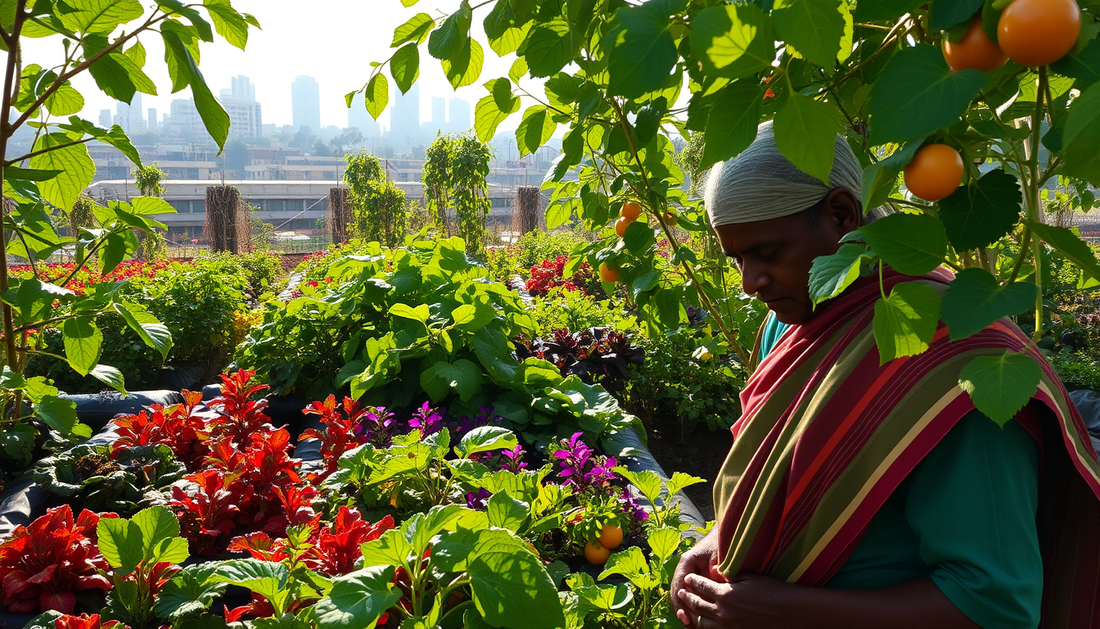
Conquering Common Pests in Your Bangalore Vegetable Garden
As the sun rises over the lush gardens of Bangalore, many urban gardeners find themselves facing a common challenge - the battle against pesky insects and pests that threaten the health and vitality of their beloved vegetable plants. Whether you're a seasoned green thumb or a budding gardener, understanding the most prevalent pests in this region and adopting effective, organic solutions can be the key to a thriving, bountiful harvest.
Identifying Common Pests in Bangalore Vegetable Gardens
Bangalore's warm, humid climate provides the perfect breeding ground for a variety of garden pests. Some of the most common culprits include:
Aphids
These tiny, sap-sucking insects can quickly infest your plants, stunting growth and transmitting harmful viruses. They are particularly fond of tender, new growth and can be found clustered on the undersides of leaves.
Whiteflies
Similar to aphids, whiteflies feed on plant sap, causing leaves to yellow and wilt. They are often seen in large numbers, taking flight when the plant is disturbed.
Cutworms
These caterpillars burrow into the soil and cut through the stems of young seedlings, causing them to topple over and die. They are particularly problematic for newly transplanted vegetables.
Leaf-Eating Beetles
From the dreaded flea beetle to the voracious leaf-eating beetle, these pests can quickly decimate the foliage of your plants, leaving behind a lace-like pattern of holes.
Spider Mites
These tiny, spider-like creatures thrive in hot, dry conditions, spinning fine webs and sucking the life out of your plants. They are especially problematic for tomatoes, eggplants, and other nightshade vegetables.
Organic Pest Management Strategies
Fortunately, there are a variety of effective, eco-friendly methods to combat these common garden pests without resorting to harsh chemicals. By adopting a holistic approach to pest management, you can maintain a healthy, thriving vegetable garden while minimizing your environmental impact.
Companion Planting
Strategically planting certain herbs, flowers, and vegetables together can create a natural barrier against pests. For example, marigolds and nasturtiums can repel aphids, while basil and tomatoes make a great companion pair, with the basil helping to deter whiteflies.
Handpicking and Removal
For small-scale infestations, the simple act of manually removing pests can be a highly effective solution. Regularly inspecting your plants and handpicking off any visible insects or caterpillars can go a long way in controlling the problem.
Organic Sprays and Deterrents
A variety of natural, homemade sprays and deterrents can be used to discourage pests without harming beneficial insects. Neem oil, garlic-chili solutions, and even a simple mixture of dish soap and water can be effective in repelling and eliminating many common garden pests.
Encouraging Beneficial Insects
Attracting and protecting natural predators, such as ladybugs, lacewings, and parasitic wasps, can help to create a balanced ecosystem in your garden. These beneficial insects feed on pests, helping to keep populations in check.
Crop Rotation and Sanitation
Regularly rotating your crop plantings and maintaining a clean, tidy garden can also help to disrupt the life cycles of many pests. Remove any diseased or infested plant material, and avoid letting weeds and debris accumulate, as these can harbor unwanted insects.
Conclusion
Conquering the common pests that plague Bangalore's vegetable gardens may seem like a daunting task, but with a little knowledge and a commitment to organic, sustainable practices, you can create a thriving, productive garden that is in harmony with the local ecosystem. By adopting a multi-faceted approach to pest management, you can enjoy a bountiful harvest while minimizing your environmental impact. So, roll up your sleeves, get your hands dirty, and embrace the challenge of keeping your Bangalore garden pest-free and flourishing.







No comments